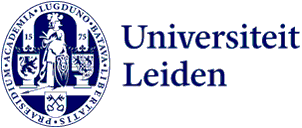
Patient to plastic surgeon: ‘I want to look like my selfie.’
An image has great powers of persuasion. It is said that ‘a picture is worth more than a thousand words’. But these days, images can easily be manipulated with severe consequences. ‘Perhaps it’s time to reconsider the value we attach to images’, says Elize de Mul, whose PhD thesis deals with ‘digital doppelgängers’.
An image as a reflection of truth
We’re all aware that photos and videos can be modified. And we’re also aware that these modifications are continually improving and the changes are not always visible to the naked eye. And still, an image remains persuasive. De Mul, a philosopher as well as media and culture scholar: ‘The prevailing opinion is still that an image is a reflection of truth; we instinctively feel that photos are proof that something actually happened.’ In this context, the metaphor ‘a picture is worth more than a thousand words’ says it all; the modern variant being: ‘Pics or it didn’t happen’.
'Pics or it didn't happen.'

Digital doubles
This human obsession with images is nothing new, but the impact of images on reality is greater than ever. De Mul has doubts about the desirability of certain technological developments. She examined how visual, digital media has formed the human identity, studying in particular digital media used to produce digital doubles: selfies, memes and deepfakes. In doing so, De Mul focussed on the unheimlich or uncanny feeling that digital doubles can induce.
De Mul takes the selfie as an example: ‘In the past, people would go to a plastic surgeon with a photo of someone famous, saying that they wanted to look like them. Now, patients mainly want to look like their “better” selves. Young people show the surgeon a selfie that has been modified using a filter and ask: “Can you make me look like my selfie?” So, the doppelgänger replaces ‘the original’ in reality. This merging of fantasy and reality is a typical feature causing the unheimlich feeling.’
Deepfake pornography
However, there are many kinds of doppelgängers. Some are produced without the agreement of the person in the image. Using someone else’s image in a different setting is indeed nothing new – Photoshop could already do that – but the emergence of the deepfake marks a new era. Anyone who posts photos or videos of themselves online risks becoming the victim of digital manipulation by others. De Mul calls deepfake a gamechanger with good reason; the potential damage that could be caused by these digital doppelgängers is unparalleled.
De Mul: 'The deepfake is a gamechanger.'
Deepfakes are mainly used for deepfake pornography, the practice where malicious persons cut and paste someone’s face – in its most sophisticated form, including facial expressions – onto the body of a porn actress in a pre-existing video. The resulting porn video is fake, but the image appears real – and victims also experience it that way. De Mul: ‘Although victims realise it’s not actually them, the persuasive power of the image is so great that they feel it is them. The images are so overwhelming and painful that the predominantly female victims say they feel like they’ve been assaulted or raped. That’s how powerful the image is.’

Smart mirror
However, de Mul does not want to reject the deepfake technology and other visual digital media out of hand; she also sees positive uses for it. ‘Research has shown that it can be effective in showing people their future selves. Take, for instance, a smart mirror, which can show you a vision of the future. Suppose you’re a heavy smoker and you’ve tried everything to kick the habit, but nothing works. What if a doctor were to put you in front of a smart mirror that shows you, the heavy smoker, in 30 years? Quite a confrontation. But you could also see yourself as the person who was able to quit smoking. What would your future self look like then? The technology behind such a digital doppelgänger can be very effective. Another example could be in dealing with bereavement. Imagine a parent whose child had died, and who could be given the chance to talk to them. The persuasive power of an image is great, and for that very reason it can be a double-edged sword.’
De Mul will defend her dissertation ‘Digitale dubbelgangers. Identiteit in de verbeeldcultuur’ (Digital Doppelgängers. Identity in the Culture of Imagination) on 5 September 2023 at 16.15 hrs in the Academy Building.
Legislation on sex crimes
This year, partly in response to a recent Dutch documentary Welmoed en de sexfakes, concerning a well-known TV presenter who was the victim of a deepfake, there has been much attention for the consequences of deepfake pornography. As a result, the outgoing Dutch House of Representatives recently approved proposed changes to Dutch legislation on sex crimes. This new legislation provides that the publication of sexually explicit images without the approval of the person depicted, including deepfake images, is not only a crime (which it already is), but also explicitly a sex crime. The proposed change shows that the legislature wants to stress the seriousness of violating a person’s sexual and mental integrity. The bill has now been sent to the Dutch Senate.
Like to learn more? Leiden Law Academy is giving a course ‘Actualiteiten Wet Seksuele Misdrijven’ on 22 September 2023. The course will be taught in Dutch and deals with topical issues related to the proposed legislation on sex crimes.
Text: Helena Lysaght.
Photo at top of article: Ben Weber via Unsplash.
